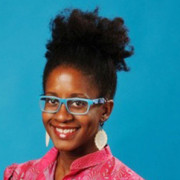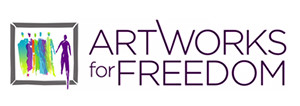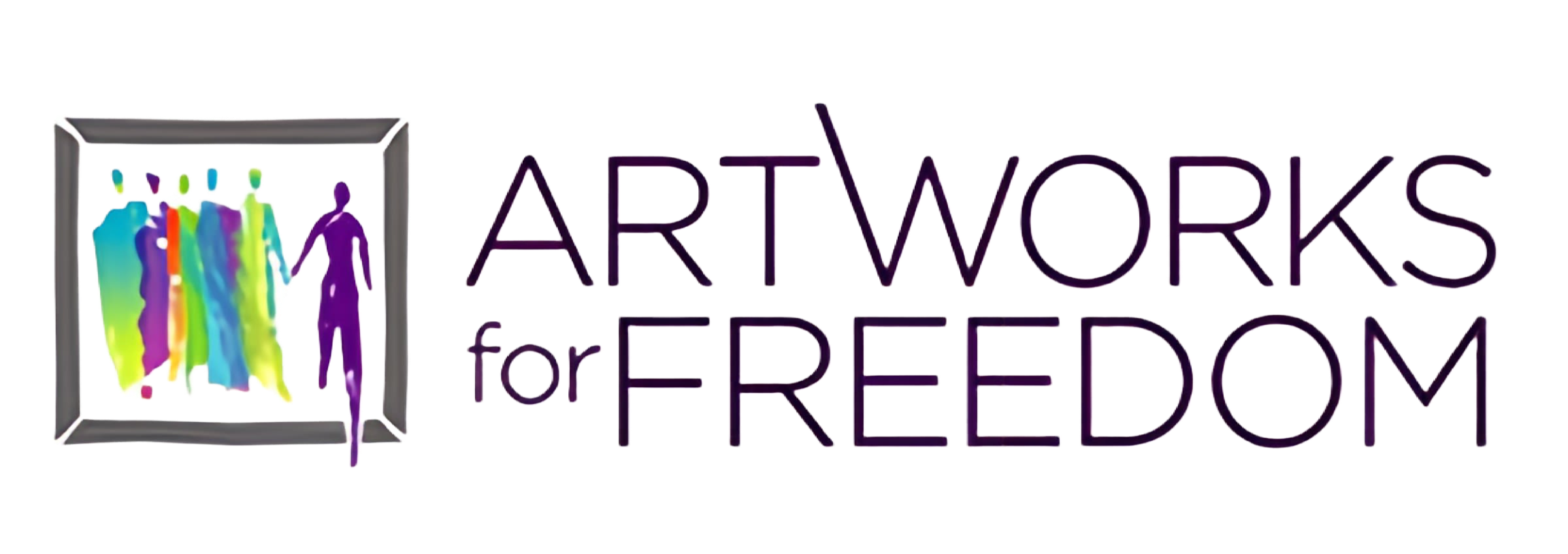In our Freedom Q&A series, we interview artists, NGO leaders, academics, students, grassroots activists and others around the world who are using their voices and creative skills to fight human trafficking.
This week, we hear from ArtWorks for Freedom contributing artist Holly Bass, multidisciplinary performance and visual artist, writer and director.
“There are times when we have to take a risk. It may not be a physical risk, it may be a social risk.” ~Holly Bass

ArtWorks for Freedom Contributor Holly Bass
HOLLY BASS believes in the ability of the arts to open eyes and engage audiences confronting complex social issues. As a multidisciplinary performance and visual artist, writer and director, Bass regularly uses her artwork to draw attention to subject matters ranging from the objectification of black bodies to race and urban gentrification. Bass creates a bridge that allows audiences to move beyond observation and participate fully in the act of creating art and awareness. Such can be seen in a recent exhibition “Flock 01,” where Bass and other artists guided audience members through performance scenes discussing life, death and liberation at the Smithsonian National Museum of African Art in Washington, DC. In her scene, Bass invited audience members to put their bodies on the line in protest fashion for African-American victims of state violence (see video).
Performance pieces like these show show Bass and her approach to art, which challenge audiences to understand social issues in new ways that may be outside of their everyday experience. This approach also makes Bass a perfect contributor to ArtWorks for Freedom. Bass plans to work with ArtWorks for Freedom in the near future on a piece that specifically addresses human trafficking using the same piercing emotion felt throughout her work. Below, she shares her thoughts on art and activism in our Freedom Q&A.
Why did you decide to lend your artistic voice to raising awareness of human trafficking?
As a person whose ancestors were brought to the United States as slaves, I am keenly aware of the cultural attitudes and mores that can allow a society or culture to accept and normalize slavery. I also work with many teenage girls who have experienced being trafficked and see the struggles they face. It’s important as a community that we recognize that trafficking and slavery aren’t things that happen on the other side of the world; they happen right here in our own neighborhoods.
What role do you feel the arts can play in anti-human trafficking work?
The arts can be a powerful tool for healing and awareness. Writing, visual arts and performance can provide a forum for vulnerable populations to open up and regain a sense of self-identity and power. For those who haven’t experienced trafficking, the arts can humanize this issue and allow us to empathize with people we imagine are different from us.
What is the best lesson you’ve learned about activism and art?
Activist art doesn’t have to be didactic or heavy-handed. It can be nuanced, thoughtful and engaging. It can be funny and joyful, even. It can encompass the full range of human expression and emotion, but it requires tremendous reflection and discipline to balance message and medium.
What advice would you give artists who want to use their work to address human trafficking but don’t know how to get started?
Artists need to be eternal students. Just as an artist must devote time to developing and refining her craft, she also must observe and process the world around her. The most important thing is that we continue to be educated citizens. This work requires research and deep investigation. It’s not enough to be emotionally moved by the tragedy of trafficking. Good art requires asking hard questions and seeing the situation from a variety of perspectives—the trafficked individuals, the traffickers, those who benefit from it. We need to be investigative reporters and explore the facts as well as examining our personal motivations.
Why is the fight against human trafficking something that everyone should be involved in?
I’d answer that question with quotes from two great activists.
“Injustice anywhere is a threat to justice everywhere.” – Martin Luther King, Jr.
“The price of freedom is eternal vigilance.” – Bishop Desmond Tutu
***
Thank you to Holly for sharing their thoughts in our Freedom Q&A! To learn more about out the art work of Holly Bass, visit her website and follow her on Twitter.




Share this entry